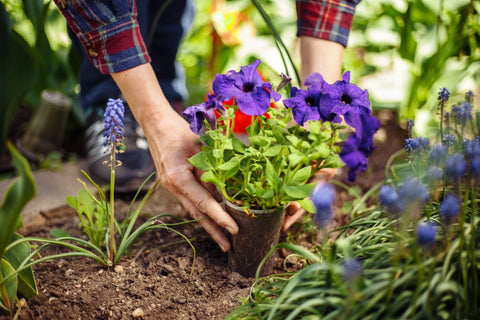7 Benefits of Houseplants
Keeping houseplants can have a significant impact on your health and well-being. We broke down 7 benefits of having houseplants with Miche, they’re as followed:
1) Improves Mood
Plants release oxygen and increase humidity, which can help to improve your mood and concentration. They can even improve the quality of your sleep since they release oxygen during the even hours.
2) Reduces Fatigue
The presence of plants has been shown to reduce fatigue and improve office performance. Plants help to freshen up the air, lighten the room, and can even be used as a way of buffering noises, which are all great ways to reduce levels of fatigue.
3) Lowers Stress and Anxiety
Studies have shown that interacting with plants can lower stress and anxiety levels.There are various factors as to how plants relieve tension in oneself, a simple example is the color of the leaves. Green, like blue, is a calming color.
4) Improves your Focus and Office Performance
Plants can help to improve your focus and concentration, as well as boost your office performance. Houseplants do this by decreasing the toxins in your work space.
5) Boost your Healing and Pain Tolerance
The presence of plants has been shown to boost the healing process and increase pain tolerance. The American Study of Horticultural Science did a journal on how plants can boost your healing and pain tolerance. Have you noticed that in quite a number of hospital rooms, there are usually plants within the vicinity or outside the windows? This is not coincidental. It has been found in various studies that plants have a therapeutic influence. In terms of the ways it provides healing, a lot of patients are often forced to take an abundance of medications, so plants serve as a healthy distraction from the medication that is needed.
6) Improves the Air Quality
Houseplants help to improve the air quality by absorbing carbon dioxide and releasing oxygen. Did you know that plants are natural air purifiers? Well, they do this through a well-known process that most of you may have learned in school called photo-synthesis. This is a process whereby plants take in carbon dioxide and toxins and release oxygen, which is the most important component of creating clean air. In Fact, there are even certain plants that partake in the act of phytoremediation, which Plantera describes as “the process of any plant that has the ability to mitigate pollutants in the air, soil or water.”
7) Eases Dry Skin and Respiratory Ailments
Plants can help to ease dry skin and respiratory ailments by increasing humidity levels. They also help with alleviating dust and toxins in the air as a result of the aforementioned process of photosynthesis and phytoremediation, thus it further helps in alleviating respiratory ailments.
If you're interested in learning more House Plant Tips and Guides from Miche Ferret's “Indoor Plant Care 101 - The Beginner's Guide to Happy & Healthy Plants” Click here.



